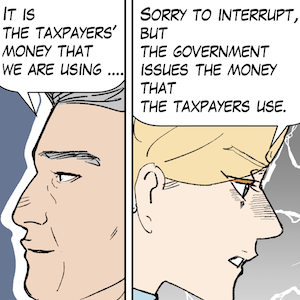The Japanese government is investing heavily in high productivity sectors and revitalising regions in the process
Last week I noted in my review of the Australian government’s Mid-Year Economic and Financial Outlook (MYEFO) – Australian government announces a small shift in the fiscal deficit and it was if the sky was falling in (December 19., 2024) – that the forward estimates were suggesting the federal government’s fiscal deficit would be 1 per cent of GDP in 2024-25, rising to 1.6 per cent in 2025-26 before falling back to 1 per cent in 2027-28. The average fiscal outcome since 1970-71 has been a deficit of 1 per cent of GDP. I noted that the media went crazy when these estimates were released – ‘deficits as long as the eye can see’ sort of headlines emerged. It was fascinating to see how far divorced from reality the understandings in Australia are of these matters. Meanwhile, the RBA keeps claiming that productivity is the problem and the reason they are maintaining ridiculously high interest rates even though inflation has fallen back to low levels. My advice to all these characters is to take a little trip to Hokkaido (Japan) and see what nation building is all about. The Japanese government has already invested ¥3.9 trillion for semiconductor industry development since 2021 (that is, 0.7 per cent of GDP) and the Ishiba government recently announced a further ¥10 trillion (1.7 per cent of GDP). Meanwhile, the overall deficit is around 4.5 per cent of GDP and no-one really blinks an eyelid. The Japanese government is investing heavily in high productivity sectors and revitalising regions in the process.
